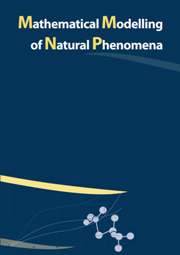Article contents
Determination of the Thickness and Composition Profiles for aFilm of Binary Mixture on a Solid Substrate
Published online by Cambridge University Press: 09 June 2010
Abstract
We determine the steady-state structures that result from liquid-liquid demixing in afree surface film of binary liquid on a solid substrate. The considered model correspondsto the static limit of the diffuse interface theory describing the phase separationprocess for a binary liquid (model-H), when supplemented by boundary conditions at thefree surface and taking the influence of the solid substrate into account. The resultingvariational problem is numerically solved employing a Finite Element Method on an adaptivegrid. The developed numerical scheme allows us to obtain the coupled steady-state filmthickness profile and the concentration profile inside the film. As an example wedetermine steady state profiles for a reflection-symmetric two-dimensional droplet forvarious surface tensions of the film and various preferential attraction strength of onecomponent to the substrate. We discuss the relation of the results of the present diffuseinterface theory to the sharp interface limit and determine the effective interfacetension of the diffuse interface by several means.
Keywords
Information
- Type
- Research Article
- Information
- Copyright
- © EDP Sciences, 2010
References
- 4
- Cited by

